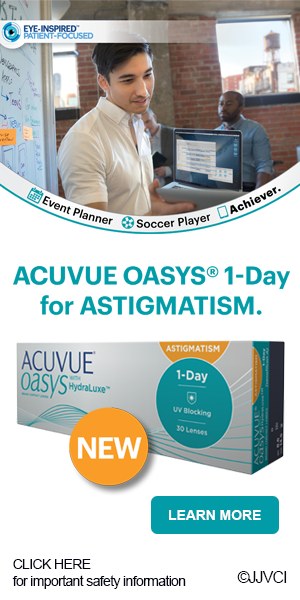Putting your best foot forward instead of in your mouth..
Optometry school is stressful. It’s a constant barrage of testing skills and knowledge to make sure that in the end when you finally get those two little letters behind your name, you will not kill or blind your patients. With everything that we have going on in the curriculum, adding the pressure of trying to network with current OD’s is almost impossible and for this reason I think many students avoid it altogether. But this is a big mistake. Yes you need to learn the basic procedures to perform a thorough examination and know how to diagnose and treat ocular disease but ultimately just having these skills won’t land you a job. You have to know people and people have to know and like you. This doesn’t happen at a thirty minute interview or even overnight, it happens over months and years of multiple encounters.
Here is a list of things that you can do to get over your fear of networking and set yourself a step ahead of the game when it comes to finding and getting that first position.
1. Attend optometry school in or near the state in which you want to practice
By default of proximity you are bound to meet doctors practicing in the area, even if you do not intend to. Many professors and attending optometrists also work in private practices, at the VA or at community health clinics in the surrounding areas. Through your professors, classmates and local optometric events you will be exposed to many industry leaders.
2. Get involved in practice management club
The main purpose of these groups is to expose you to different modes of practice and help facilitate networking opportunities. They often host panels or dinners where students can talk to doctors in a more informal setting. CE events hosted by these groups can also give you a good reference of some topics that you can discuss with doctors.
My local practice management group hosted a construction company that specializes in building optometry practices. A year later while I was out to lunch with an optometrist, I discovered that she was remodeling her practice and was having trouble finding a company that understood what she really needed. I was able to refer her to the construction company from that prior CE event and it was a win-win situation for everyone involved.
3. Shadow local optometrists
I know, you thought your shadowing days were over but this really is a great way to meet local doctors. This experience allows for one-on-one interaction between you and the optometrist for a substantial period of time. A doctor is more likely to remember the student that came to the office for a half a day versus the one of many students that they met for a few minutes at a busy networking event. You will meet interesting patients, hear stories from the staff and see a variety of ocular conditions that will make it easy for you to ask questions and create a dialogue with the doctor.
4. Connect with someone on the local state association board
Shadowing and talking to local doctors is a great idea but shadowing a member on the board of the state association can open a lot of doors. Chances are a board member is going to be very well connected and the opportunity may arise where they can introduce you to many other influential people in optometry. As a liaison for the profession they will almost certainly know who is looking to hire and they can offer to be a good character reference for you in the future.
5. Find a mentor
One of your main goals should be to meet as many optometrists as possible but it is also important to find one or two key contacts that can help you navigate your way into the profession. It can sometimes be hard to find opportunities to network and then when you do it may be difficult for you to approach someone that you don’t know. A mentor can help you through this process and may be the one that invites you to the local society meetings or introduces you to the state association president or to an optometrist that is looking to hire future graduates.
A great mentor will be willing to share with you the insider information about topics like their salary, what they pay their associates and how much they earn in practice. These aren’t questions that you want to ask every doctor you meet and most wouldn’t answer if you did.
6. Attend local and national conferences
Making your face known is imperative. Think of how you got to know your friends. You didn’t become close friends by meeting someone once. You built the relationship over time after seeing and acknowledging that person on multiple different occasions. Attending several conferences is a great way to get your name out there to doctors nationwide. This is especially helpful to those of you who are not attending school in the state in which you intend to practice. If you go to school in Oregon but want to practice in Utah these conferences are a chance for you to connect with doctors from that area.
This also gives you an instant topic of conversation. Email the doctors you know and ask them if they will be attending the conference, inform them that you are going and then ask questions like “Who are the best speakers to see? What events of the conference should I attend? Would you be interested in meeting up at the conference?” Even if they do not have time to meet with you at the conference or they aren’t attending, you’ve opened up a dialogue and they can see your commitment to the profession.
7. Keep a running list of questions
This is extremely helpful when you don’t know what to say. So you’ve attended Optometry’s Meeting you met a wonderful optometrist on your local state board and you overcame the fear of introducing yourself but what do you talk about? Having a pre-planned list of questions in mind can help ease this anxiety.
The questions you don’t ask at the encounter can also extend the conversation. A week or so after the meeting you can email the doctor to let them know you enjoyed meeting them and then ask any subsequent questions you didn’t get a chance to ask previously. This will keep your face and name in their mind and keep the interchange going.
8. Work as an optician or optometric technician on the weekends or over the summer
Working for a future employer as a technician or optician for a short period of time is also a great idea. This situation can help both you and the doctor determine if you work well together. Becoming close with the office staff is a bonus! When it comes down to hiring, people want to work with people that they like. If this position doesn’t get you much interaction with the doctor but you worked closely with the staff and they love you, than they can become amazing references. You can use this opportunity to shine and really show your commitment to learning about the doctor and their mode of practice.
9. Convey confidence
Many students are afraid of looking stupid when talking to practicing optometric physicians. The truth is that the doctors you meet do not expect you to know everything because they certainly don’t. Chances are that at the moment, you may know more than the doctor does about certain optometric topics because you’re living and breathing it at school. So be confident with what you do know and don’t sweat what you don’t know.
10. Talk about topics other than optometry!
Optometrists are people too. They have lives outside of their business and their profession. They have families and hobbies and these things are just as important to them as their career. You may find that you both love to ski or volunteer, you may have children around the same age or the same type of pets. Finding common ground in areas outside of optometry is essential to building the relationship.
When using any of these tips don’t forget to be yourself. You won’t be doing yourself any favors if you pretend to be interested in pediatrics but hate working with children or if you portray that you love skiing but you’ve never actually been. Most of all relax and enjoy the process of getting to know your future colleagues and making new friends.
Heidi Larner
Pacific Practice Management Group President-Elect
Pacific University Class of 2017 student council member
AOA-PAC liaison






